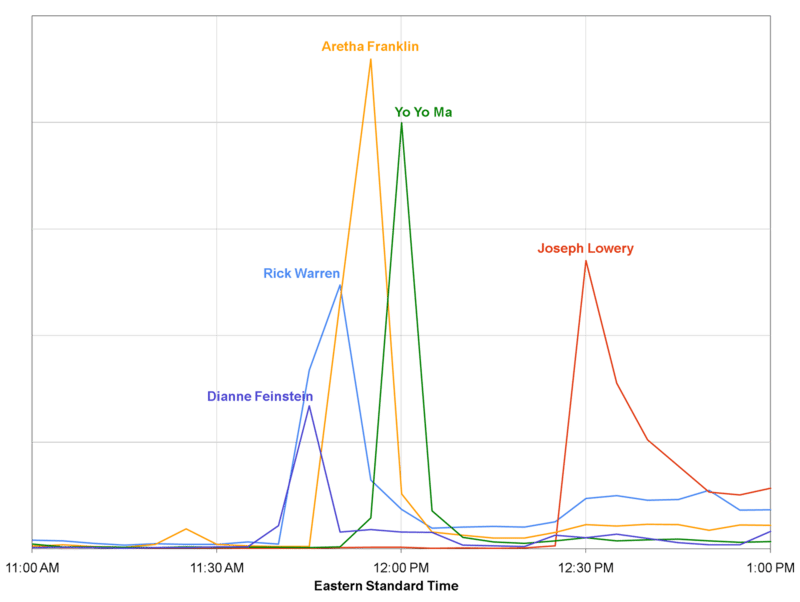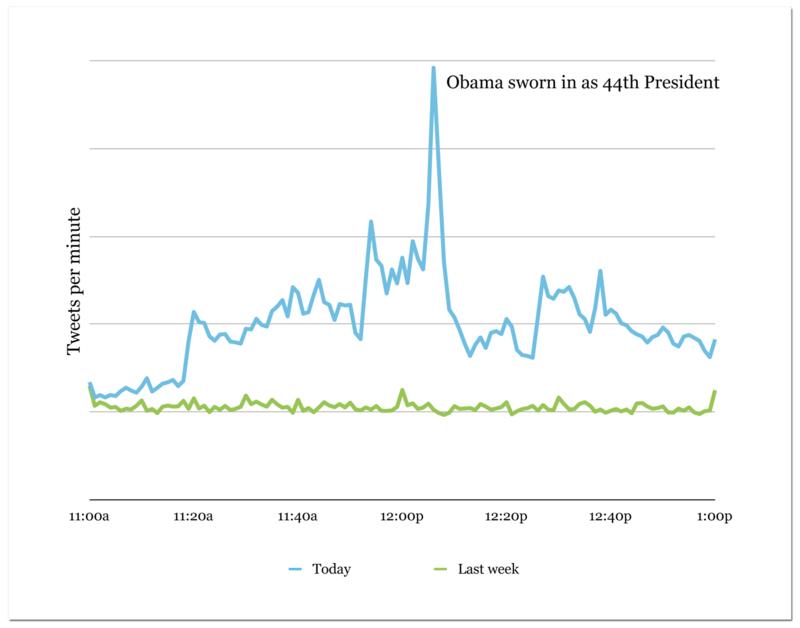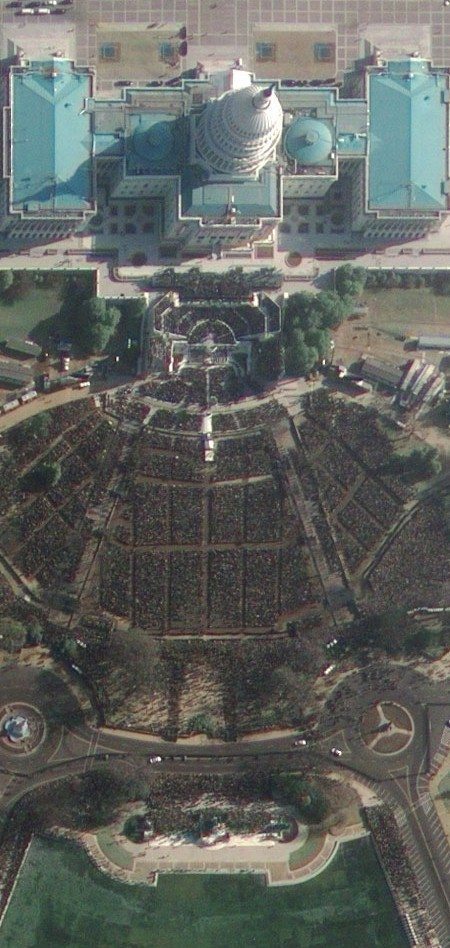
My blog below explains why banking will be free, and this can be illustrated well by the events of yesterday as the inauguration of Barack Obama resulted in a range of technology disruptions.
For example, CNET reports that various web services were breaking all records:
- Akamai estimated that 5.4 million visitors per minute were flocking to online news outlets, 22% more than normal online news consumption, although the record was 8.6 million visitors per minute when the Presidential election victory was announced last November;
- CNN.com said it delivered more than 18.8 million live video streams, including 1.3 million at the same time right before Obama gave his address. That's a record.
- Facebook partnered with CNN for a live feed of "status" updates related to the inauguration and, by 10:15 a.m. PST / 18:15 GMT, 600,000 status messages had been set using the CNN app with an average of 4,000 Facebook status updates every minute during the inauguration. They peaked the minute Obama began his speech, with 8,500 status messages in that minute alone.
Google's blog shows a clear spike of usage of searches, based upon what people were seeing live:

Whilst Twitter, who I referred to the other day, peaked at five times the volume of normal traffic.

Meanwhile, Obama's team who get the net - after all, they raised over $150 million in September 2008 mostly through small individual donations averaging $100 each - immediately began to launch new web services to leverage the President's new office.
Specifically, there's the new White House Blog, which promises more communication, participation and transparency. Slate provide a great guide to the new website, launched yesterday morning as Obama was sworn in. I particularly liked Slate's headline: "I Do Solemnly Swear That I Will Blog Regularly".
Finally, the GeoEye-1 space satellite took photos of Barack Obama's inauguration yesterday.
The photos were taken from 423 miles away.
423 miles away vertically, up in space.
The photo's are pretty amazing:

GeoEye-1 is the satellite that fuels Google's Earth maps. In other words, it is the internet's eye on the world.
All of these records and changes are examples of how technology is changing our world.
I wonder what banks are doing with this?
Read on ...
Chris M Skinner
Chris Skinner is best known as an independent commentator on the financial markets through his blog, TheFinanser.com, as author of the bestselling book Digital Bank, and Chair of the European networking forum the Financial Services Club. He has been voted one of the most influential people in banking by The Financial Brand (as well as one of the best blogs), a FinTech Titan (Next Bank), one of the Fintech Leaders you need to follow (City AM, Deluxe and Jax Finance), as well as one of the Top 40 most influential people in financial technology by the Wall Street Journal's Financial News. To learn more click here...

